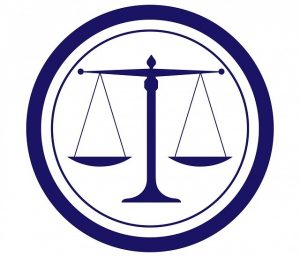Earlier, we examined the intersection between evil, the devil and how these can impact us in our everyday lives. We drew on the work of postmortem Sir Arthur Conan Doyle, the late businessman and out-of-body experience (OOBE) expert Robert Monroe, and medium Chip Coffey to show how paranormal evidence strongly urges us to live ethical earthly lives in an awareness of the law of karma and the reality of reincarnation.
Today we will build on these arguments and observations by looking more specifically at our current political climate and how the basics of our democratic republic mesh with basic principles of civil, individual behavior. On the surface, this would appear to be an unnecessary exercise: of course most of us do not want to commit violence (or, presumably, be an innocent victim of it) or terrorize our fellow human beings. However, with today’s calls for and acceptance of violence at the highest levels of our society, in pursuit of political or ideological goals, this analysis becomes critical.
Today’s rise in political violence
One can justifiably argue that the twice-impeached, indicted, one-term (and probably psychopathic) former President Donald Trump is fomenting violence and has been for some time:
- “Trump suggested in an online post that Gen. Mark Milley, the former chairman of the Joint Chiefs of Staff, deserved to face the death penalty.”
- “In California, he called for shoplifters to be shot on sight.”
- “Criticizing former House Speaker Nancy Pelosi, D-Calif., … he mockingly asked how Pelosi’s husband was doing, referring to the violent attack on Paul Pelosi last year during a home invasion by an assailant authorities say was steeped in Trump’s election conspiracy theories.”
- In November 2023, Trump “vowed to ‘root out’ the ‘radical left thugs that live like vermin within the confines of our country.’”
In addition, over 700 participants in the insurrection of January 6, 2021, have pleaded guilty to felonies and misdemeanors related to the day, many of those participants stating that it was Trump whom they were “obeying” for their illegal and violent behavior. Some examples include Jeremy Joseph Bertino, Matthew Greene and Charles Donohoe of the Proud Boys.
What is more difficult to understand about millions of Trump’s supporters is their attitudes toward illegal and unethical behavior and even violence; their clinging to his thousands of self-serving lies; and his obvious ambition to become a dictator. Not only must we ask why these Americans lean toward this kind of leader (there are many plausible theories), but we must also ask what these citizens expect would happen to them if Trump were to win the Oval Office again.
There is ample evidence that Trump behaves almost exclusively for himself alone and has for his whole adult life. Yes, Trump succeeded in appointing three right-wing Justices to the Supreme Court, who then succeeded in overturning Roe v Wade – a decades-long goal of anti-abortion activists (who are a significant minority in the US). However, beyond that, it is unclear what Trump accomplished on behalf of individual Americans.
What is almost certain is that a Trump presidency 2.0 will undoubtedly not change his self-serving, greed-based, highly dishonest and likely illegal efforts. Here are a few things to keep in mind.
- Trump has directed his ire toward many prior allies when he perceives that they have turned on him. Mike Pence is a prime example. No one who supports Trump should deceive themselves into thinking that they are beyond ultimately being betrayed by him one way or another.
- A prime example of Trump’s complete disregard for the well-being of even his own supporters came recently in the context of the Iowa caucuses. He told his supporters: “You can’t sit home. If you’re sick as a dog, you say: ‘God I gotta make it.’ Even if you vote and then pass away, it’s worth it.”
 Trump has routinely attacked Americans involved in the legal system, leading to online harassment, “swatting,” bomb scares and even death threats against our fellow citizens who are merely doing their jobs.
Trump has routinely attacked Americans involved in the legal system, leading to online harassment, “swatting,” bomb scares and even death threats against our fellow citizens who are merely doing their jobs.- Supporters often maintain that Trump’s comments are being spoken in jest, and those supporters criticize his detractors as lacking a sense of humor. The question must be asked of such supporters is whether a former President and current candidate for that extremely important office should be joking about violence, someone’s physical appearance or disability, someone’s misfortune, someone’s name.
Is there a possible relationship between Trump’s long fame as a celebrity and how some of his supporters view him? Is it possible that at least a few may be suffering from a level of “celebrity worship syndrome”?
- Investing a lot of time and energy into a connection with him, even though he probably doesn’t know the admirer exists (or cares).
- Exhibiting a pattern of behaviors that are often obsessive, compulsive, and addictive.
- Being uncompromising on beliefs (cognitive inflexibility).
The intersections between democracy and ethical behavior
Now let us examine in brief how Trump supporters fit or do not fit into the parameters of our nation’s normative underpinnings. The basic principles of democracies include the following:
- Justice for all under the law, not just for the majority or for the minority.
- Due process and the reliance on facts and truth in a court of law.
- Law and order – peaceful coexistence with our neighbors.
- Liberty. Do we want freedom for ourselves? What would it feel like if our freedom were unfairly taken away from us?

- Right to vote and free and fair elections. How would we feel if the way that we’ve been voting for years – absentee or ballot drop boxes, for instance – was taken away from us?
These basic principles are very similar to how we learn to behave toward each other from childhood: don’t lie, don’t pick a fight, be kind to others, practice basic fairness. Most of us can agree that we should be able to express our opinions without being threatened or silenced (with some legal exceptions), that we can earn an honest living without putting our lives at risk, that we should be able to trust those who swear to protect the community (such as law enforcement), that we should be able to exercise our right to vote without harassment or undue hurdles to overcome. We all know that disagreements can occur, and we can also agree that we have serious problems as a nation that need to be addressed. Often in our history, we have mainly differed on how to resolve our problems – one of the positives about our nation is that we can have different ideologies and beliefs, some of which are very strong. This is not the case in totalitarian or authoritarian countries: there is no freedom of belief, action or thought.
What is taking place in our public discourse now, however (and this is not a new phenomenon, unfortunately), is that some of us not only think that our perspective is justified but that someone who disagrees with us is disturbed, dangerous or somehow our enemy. But even in these situations – generally speaking – most of us do not want to harm or kill the person with whom we disagree. If someone is committing or has committed a crime, we usually want the authorities and the judicial system to take over – the vast majority of Americans are not vigilantes, even if they are horribly victimized. Most of us understand that a society eventually does not succeed for anyone in the long term if it degenerates into constant vengeance and a cycle of violence.
When most of us are being raised, we are asked to put ourselves in the other person’s shoes. The ultimate parenting goal is to promote empathy toward others. In the context of our democracy and the common good, it is valid to ask those who advocate violence the following:
- How would they feel if someone said such things to or about them?
- How would they feel if they were a victim of violence?
- How would they feel if one of their loved ones were a victim of cruel comments or violence?
The downside of asking these questions in our current environment is that Trump and others like him have been successful at turning this exercise into an ideology of grievance: these Americans are being “trained” to think that they are the victims, even when they might actually enjoy a relatively good life. Consequently, actions such citizens take to redress the presumed grievances are believed to be justifiable retribution.
 In a democratic republic like ours, founded on a Constitution and the rule of law, the cycle of violent retribution is not only unethical but illegal. In the thinking of many in the Trump and right-wing camp, though, our laws do not apply; Trump has specifically vowed to overthrow the Constitution, and many of his followers support him. It may be nearly impossible to change these citizens’ attitudes. The goal, then, of those of us who do believe in the Constitution and the rule of law, is to prevent the “cancer” of political violence from spreading – to plant the thinking of democracy and the common good in the minds of youth, independents and Republicans who may be swayed by the arguments.
In a democratic republic like ours, founded on a Constitution and the rule of law, the cycle of violent retribution is not only unethical but illegal. In the thinking of many in the Trump and right-wing camp, though, our laws do not apply; Trump has specifically vowed to overthrow the Constitution, and many of his followers support him. It may be nearly impossible to change these citizens’ attitudes. The goal, then, of those of us who do believe in the Constitution and the rule of law, is to prevent the “cancer” of political violence from spreading – to plant the thinking of democracy and the common good in the minds of youth, independents and Republicans who may be swayed by the arguments.
How paranormal evidence can help
Anyone sympathetic toward retribution, political violence, or any other form of cruelty to others should think long and hard about the consequences – not only to their fellow citizens and their personal liberty (if they are convicted and imprisoned) but also to their souls. This may sound like religious ideology, but the paranormal evidence points directly to the law of karma – the law of cause and effect.
- As postmortem Sir Arthur Conan Doyle taught, wrongdoers who cross over (die) enter “grey, misty, dark-November-fot places, good to get out of. . . [The one] who has lived a life gross, material, sensual, or selfish, finds himself in ‘queer street’ [in trouble]. . .
 Those who migrate thither are such as hold neither affection nor love for any creature save self” (Cooke, Beyond, 110, 163; …, Abrahamsen, Paranormal, 159).
Those who migrate thither are such as hold neither affection nor love for any creature save self” (Cooke, Beyond, 110, 163; …, Abrahamsen, Paranormal, 159). - Free will is a paramount truth. A 1986 example of electronic voice phenomena, for instance, revealed that our learning process in life is “closely connected and tied in with free will and choice of the individual… [B]lind obedience is not what higher powers want” (Butler and Butler, No Death, 120).
- Any unethical and unsavory actions toward others that we commit will ultimately have to be repaid. The wisdom offered by the nonprofit Eternea is helpful in this regard and also touches on free will. Number Six of their Seven Statements states: “In the cosmic web of creation, there is a vast matrix of cause-effect relationships, meaning that what one does to all other things, one does to oneself. What is sown is reaped. As below, so above. What goes around comes around. Free will is a universally honored and upheld principle and practice, while so too is accountability for all actions or inactions in the exercise or expression of one’s free will. Any use of free will which is not consistent with unconditional love and compassion brings eventual adverse karmic consequences.”
- Purgatory and hell are encountered in some of the paranormal literature. Purgatory, according to Episcopal priest and psychologist Morton Kelsey, is “a place of redemption and renewal where we are transformed and grow more and more into children of God” (Kelsey, Afterlife, 247; Abrahamsen, Paranormal, 158). As Doyle discovered, the soul enters Purgatory in order to go to higher planes, through its own spiritual efforts (Cooke, Beyond, 110; Abrahamsen, Paranormal, 159).
- Hell, contrary to what we may have been taught, is not a permanent condition – but still very uncomfortable and to be avoided. Renowned medium James Van Praagh reports this: “This lower region vibrates at a much slower rate than the upper regions. Here the light is dim and fades almost to a faint darkness. . . A pungent and unpleasant odor pervades it. . . ¶ Spirits in such a dark realm harbor mental attitudes of hate, malice, and the need for control over others” and include “murderers, rapists, thieves, swindlers, cheaters, assassins, or anyone who has harmed another human being. . . A soul remains in this darkened hole until all of its lowest desires are lived out” (Van Praagh, Reaching, 60-61; Abrahamsen, Paranormal, 160).
- Greed, self-aggrandizement, selfishness, narcissism and violence will almost certainly need to be confronted in another incarnation on earth.
 Psychic and healer Maureen Hancock has heard from her spirit guides that we repeatedly return to earth to work through challenges in order to grow spiritually: “we have a set of goals to help us reach our highest vibrational level” (Hancock, Medium, 135; Abrahamsen, Paranormal, 171). More pointedly, mystic Edgar Cayce learned the following in one of his Life Readings: “The murderer who shed innocent blood in one life will balance the scale in another by symbolically shedding his own” (Langley, Cayce, 52; Abrahamsen, Paranormal, 172).
Psychic and healer Maureen Hancock has heard from her spirit guides that we repeatedly return to earth to work through challenges in order to grow spiritually: “we have a set of goals to help us reach our highest vibrational level” (Hancock, Medium, 135; Abrahamsen, Paranormal, 171). More pointedly, mystic Edgar Cayce learned the following in one of his Life Readings: “The murderer who shed innocent blood in one life will balance the scale in another by symbolically shedding his own” (Langley, Cayce, 52; Abrahamsen, Paranormal, 172).
Conclusions
Our democratic principles, the way that most of us are raised, and the paranormal evidence all converge.
- What are the values and priorities in our lives?
- How do we want to spend our time, energy and financial resources?
- How is the health of our soul? What do we want our legacy to be?
- How might our actions be related to the law of cause and effect?
In short, Trump supporters might well ask themselves: is violence on behalf of Donald Trump – or white supremacy, or the fight against diversity, equality and inclusion, or animosity toward transgender persons, or the effort to ban certain books – worth it?
To end on a note of hope, it seems highly likely that most of us think political violence is not a viable option.  Most of us strive to serve our “higher angels” and the loftier values of love, compassion, equality, justice, and mercy. Most of us want to find ways to solve our problems and resolve our differences without violence. We have done it before in our country – we can, and must, do it again.
Most of us strive to serve our “higher angels” and the loftier values of love, compassion, equality, justice, and mercy. Most of us want to find ways to solve our problems and resolve our differences without violence. We have done it before in our country – we can, and must, do it again.
Resources
Abrahamsen, Valerie A. Paranormal: A New Testament Scholar Looks at the Afterlife. Self-published, 2015. Printed by Shires Press, Manchester Center, Vermont; now available at Barnes and Noble.
Butler, Tom and Lisa. There is No Death and There are No Dead. Reno, NV: AA-EVP Publishing, 2008.
Cooke, Ivan. Arthur Conan Doyle’s Book of the Beyond. New Lands, England: The White Eagle Publishing Trust, 2006.
Hancock, Maureen. The Medium Next Door: Adventures of a Real-Life Ghost Whisperer. Deerfield Beach, FL: Health Communications, Inc., 2011.
Kelsey, Morton T. Afterlife: The Other Side of Dying. New York, Ramsey and Toronto: Paulist Press, 1979.
Langley, Noel. Edgar Cayce on Reincarnation. New York: Warner Books, Inc., 1967.
Van Praagh, James. Reaching to Heaven: A Spiritual Journey Through Life and Death. New York: Penguin Books, 1999.
